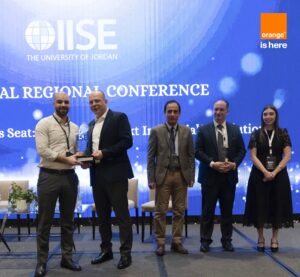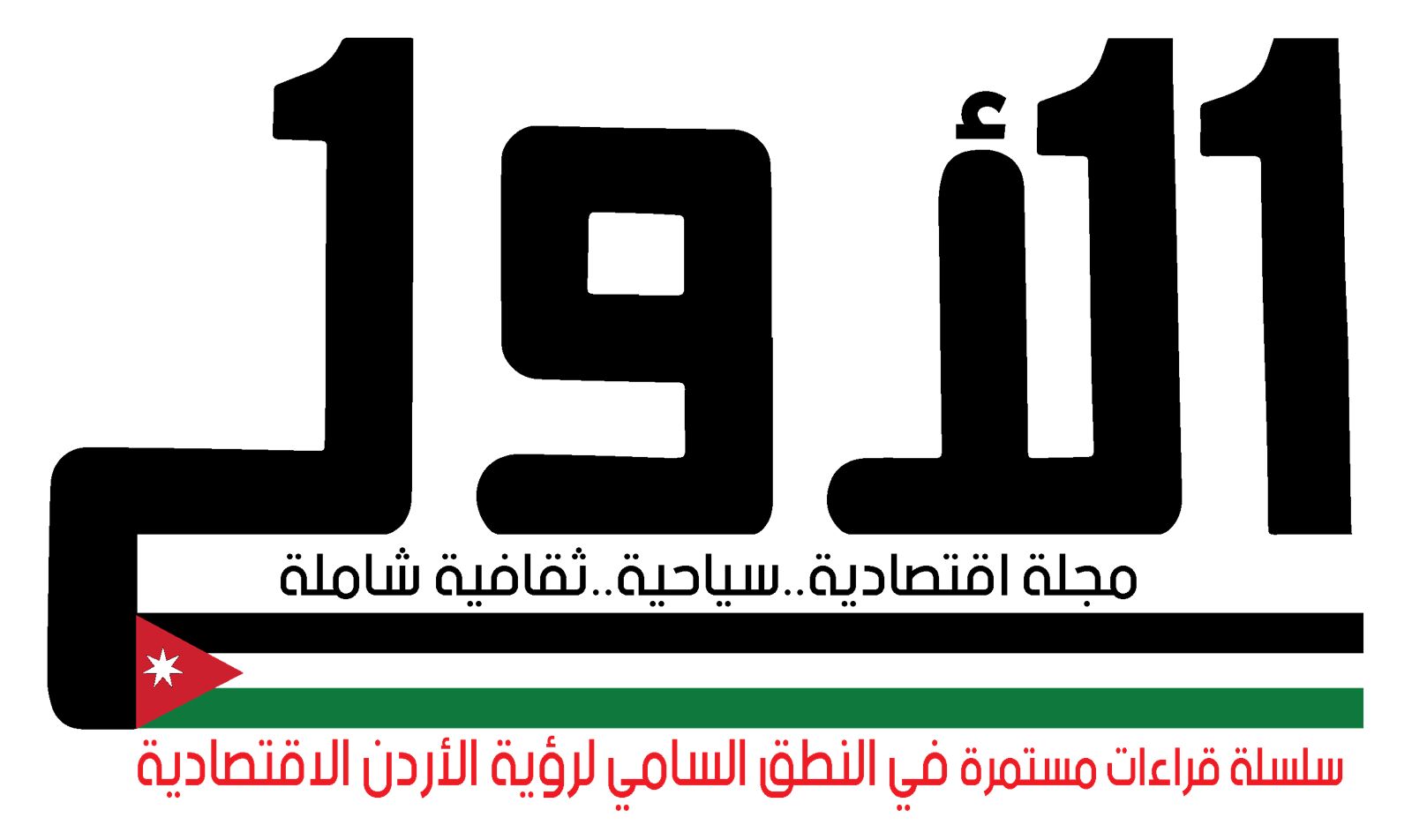In a comprehensive economic dialogue
Abu Sa’ilik: Economic file tops priority for HM the King, Jordanian state
Oman – Private
Khair Abu Sa’ilik, former deputy chairman of the parliamentary investment committee and an expert in economic affairs, said that the economic file is at the top of the list of priorities for the Jordanian state, pointing to the royal interest and follow-up of His Majesty King Abdullah II in all issues of economic concern.
Abu Sa’ilik pointed out in a comprehensive dialogue with the “first” that since the Kingdom entered its second centenary, the Jordanian state began to renew its tools with regard to three tracks: the political track, the economic track and the administrative track, if it realized that in the new centenary there must be effective tools through which the service provided to the citizen can be better and economic performance better, and among these tracks was the vision of economic modernization.
He pointed out that the Jordanian economy recorded high growth rates in 2000 to 2008 exceeding 6.30%, but the crises continued after that, starting with the global economic crisis in 2009 and then the region witnessed the repercussions of the so-called Arab Spring and the cost paid by Jordan as a result of some security arrangements and the fight against terrorism, as well as the repercussions of the Corona pandemic, the Russian-Ukrainian war, the repeated rise in interest rates and the brutal war on the brothers in Gaza, pointing out that all these effects Geopolitics negatively affected the performance of the Jordanian economy, knowing that the Jordanian economy recorded growth rates of about 2.5%, and this percentage, although positive, does not live up to the aspirations of citizens.
Economic modernization map for the next ten years
Abu Sa’ilik pointed out that these events and their increasing impact on the Jordanian economy constituted a concern on the reality of the economy, which prompted His Majesty King Abdullah II to form a committee that includes experts and specialists from various economic sectors and invited them to meet at the House of Jordanians at the Royal Court to develop an economic roadmap for the next ten years, this map aims to move growth rates from 2.5% growth to 5.3%, and also aims to create one million job opportunities for young people, where the cost of This vision is 41 billion, of which 11 billion will be financed by successive governments, while 30 billion will be secured by the private sector, indicating that the government has carried out an executive program for the years 2023 to 2025 and began to implement this program and we moved from a growth rate of 2% to 2.7 until the end of the third quarter of 2023 when the events of Gaza came at the end of 2023 and the growth rate declined to 2.6%, and the decline will continue until this year 2024 to return the growth rate back to 2%.
Financial Adjustment and IMF Agreements
Abu Sa’ilik stressed that managing the Jordanian economy is not an easy task and that the geopolitical variables are large, in addition to international variables, as the Jordanian economy is a relatively small economy despite the existence of a number of free trade agreements, and therefore successive governments, specifically the economic team, were able to overcome many of the problems that occurred in the course of the Jordanian economy, and the most prominent of these obstacles was perhaps the fiscal adjustment program agreed upon with the International Monetary Fund.
He explained that it is recorded for the current government that it has successfully completed the reviews of the previous program and entered into a new agreement with the International Monetary Fund in the name of the “extended” facility program, which enabled Jordan to sustain public finances well and enabled it to borrow at relatively acceptable interest rates compared to some countries that do not have an agreement with the Fund, and therefore the management of this file in my opinion and in my estimation was a good thing, in addition to the management of the monetary policy file in which the Central Bank of Jordan, which was classified as a policy. Prudent has enabled Jordan to maintain a reasonable amount of foreign exchange reserves.
Investment Environment Law
He pointed out that the Investment Environment Law issued in 2022 and the Public-Private Partnership Law, which was recently issued, gave the Investment Law a great competitive advantage to investors, equated the local investor with the foreign investor, and also provided basic incentives and additional incentives, and provided facilities that reduce the level of bureaucracy. In parallel with all this work, the government has modernized the public sector system. We acknowledge that the performance of the public sector in Jordan has been relatively at times and weak, and we admit that it suffers from sagging. And that there is a high bureaucracy and therefore the need for there to be modernization in the administrative track in parallel with the specificity in the political and economic track.
The House of Representatives and the supervisory and legislative role in serving the economy
Abu Sa’ilik indicated that the successive parliaments played an important role in approving economic legislation through legislation, laws and amendments introduced by the Council to some important laws, especially the Investment Environment Law No. 21 of 2022, which came as a result of in-depth and lengthy discussions with the private sector, and therefore the role of the House of Representatives in approving economic legislation was important.
He also referred to the role of the Council in approving the law of partnership between the public and private sectors and there were amendments to the Companies Law and there were amendments to the Customs Law and to the licenses of professions and a number of very important legislative amendments introduced by the House of Representatives so that the legal framework is a possible framework for the investor and those wishing to invest in the Hashemite Kingdom of Jordan in addition to the oversight role played by the House of Representatives and remember how the financial committees discussed the reports of the Accountant Bureau and there are recoveries for some money which went unjustly .
He pointed out that the House of Representatives is waiting for an important and more active role during the coming period, which we will witness partisan blocs within the House of Representatives, as these blocs have programs and plans that are very consistent with the vision of economic modernization, pointing out that we hope that there will be a distinctive legislative and oversight performance and this performance will be possible for the government and supportive of the private sector.
Strengthening economic sectors
On the economic sectors that need more attention, Abu Sa’ilik considered that the industrial sector is the most operating sector, which is the sector that exports, which contributes to bringing more foreign currency to the country and strengthening the Kingdom’s reserves of foreign currencies, and therefore this sector deserves to be viewed positively, especially value-added industries and creative industries.
He also pointed out that the service sector, including tourism, is one of the important sectors, and tourism must restore the elegance it had previously, and re-promote Jordan in a new way that shows the positive aspects, foremost of which is the advantage of security and stability enjoyed by the Kingdom in comparison with a flaming region and a region with many turmoil, pointing out that it is also necessary to focus on the trade sector, as Jordan can be marketed as a platform for marketing trade and logistics operations in the region, especially in Syria. And in Iraq and a number of surrounding countries we have.
He stressed that these sectors that require focus on them, noting that the vision of economic modernization included eight drivers, noting that all other sectors are important, but we focus on the most operating sectors, we focus on the sectors that contribute most to the domestic financial output and focus on the sectors that have the export advantage, which enables Jordan to maintain an acceptable level of foreign currency.
Institutions with a high level of bureaucracy
Abu Sa’ilik believes that the institutions that provide a tangible achievement for the citizen in the first place and for the Jordanian economy are the institutions worthy of attention and focus on them during the coming period, despite the importance of all Jordanian state institutions, that it must focus on some institutions that have a high level of bureaucracy and that have a direct impact with the citizen and with the investor alike, foremost of which is the Greater Amman Municipality, which needs to review some regulations in it and facilitate the investor in addition to the Department of Lands and Survey, which It has procedures that may be old and need to be modernized and developed, in addition to the General Customs Department also has capabilities, but there must be better procedures in the future.
He stressed the importance of paying attention to the Ministry of Industry and Trade as it has contact with the industrial sector and the commercial sector, and through this ministry can talk with all these departments to update the systems and reduce the time spent by citizens if we look at the ease of doing business index in the reports issued by the World Bank.
He called for more effort in the subject of improving the business environment and improving and ease of business in the sense that there is a high level of bureaucracy that delays the completion of these files and the investor when he comes to any country looks at the ease of business and how it is possible to summarize the completion of matters related to his investment within a relatively short time Hence, I think that the most government departments in which tangible changes can be made are those departments that are directly related to the investor and the citizen alike, which enables During which the procedures are re-engineered and access to agile procedures through which the investor can go to electronic means that are interactive between him and these institutions without friction with the public employee.











